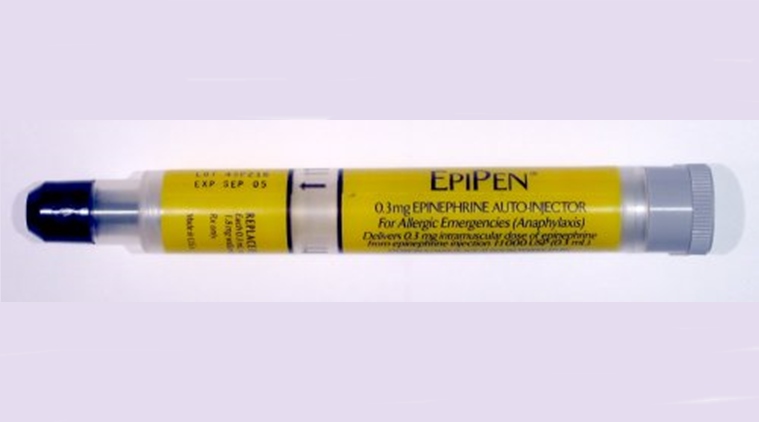Mylan increases price of EpiPen by 400%, parents struggle to find alternatives
The EpiPen is an epinephrine auto-injector, a live saving device for most children as it helps to contain allergies in an emergency.
 An older version of the EpiPen. (Photo: Wikipedia)
An older version of the EpiPen. (Photo: Wikipedia)
The makers of the EpiPen, short for epinephrine auto-injector which is an injectable device that is filled with medicine and can stop a life-threatening allergic reaction with immediate effect, have increased the price of the device from $100 in 2008 to above $500 in 2016, making it a hike of over 400 per cent, the NBC reported.
The EpiPen, a live saving device for most children, helps during a sudden allergic reaction that could be life threatening. Parents are now scrambling to find a way around the price since the rise has raised a question mark on affordability. The EpiPen has a shelf-life of 12 to 18 months, as opposed to a manual syringe with a vial of epinephrine which has a shelf-life of three months, making the injector more desirable by parents.
The NBC reported that former pharmaceutical executive Martin Shkreli has called the Mylan company “vultures.” Shkreli, who was formerly the CEO of Turing Pharmaceuticals, was himself under fire nearly a year ago when his company raised the price of a drug for treating a deadly parasitic infection by more than 5,000 percent. The price was hiked from $13.50 per pill to $750 overnight, inviting extensive backlash.
The price hike of the EpiPen also caused Bernie Sanders to speak out. He tweeted that the price of a device that costs only a few dollars shouldn’t cost families more than $600. “There’s no reason an EpiPen, which costs Mylan just a few dollars to make, should cost families more than $600,” he said.
There’s no reason an EpiPen, which costs Mylan just a few dollars to make, should cost families more than $600. https://t.co/rVWUlMxD0Q
— Bernie Sanders (@SenSanders) August 18, 2016
The NBC also quoted Dr. Douglas McMahon, an allergy specialist in Maplewood, Minnesota, who said, “Patients are calling and saying they can’t afford it. They’re between a rock and a hard place.” Connecticut Senator Richard Blumnthal had earlier put forth the proposal that epinephrine must be stocked in schools in case of emergencies. He has promised an investigation of the “shocking increase.”
Mylan, the company that manufactures the EpiPens, has an undisputed monopoly especially after its chief competitor, Canadian company Sanofi, in the US as Auvi-Q, recalled the EpiPens it made due to inconsistencies with the product. NBC reports that in 2015, Mylan’s profits came to $1.2 billion from the sale of EpiPens.
- 01
- 02
- 03
- 04
- 05































